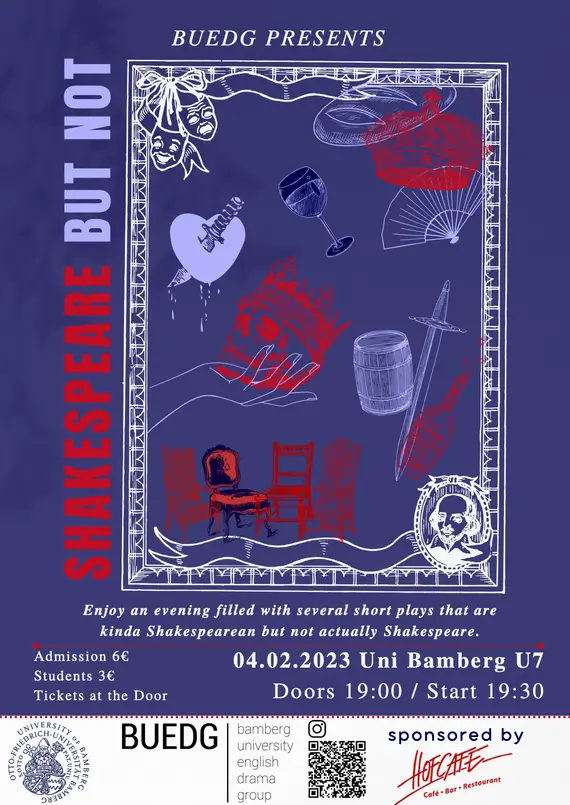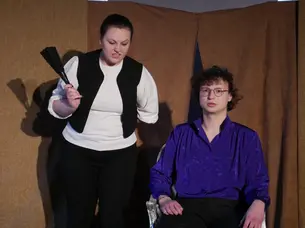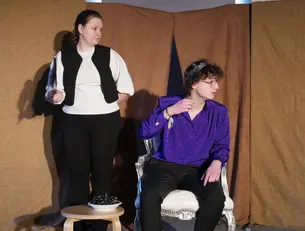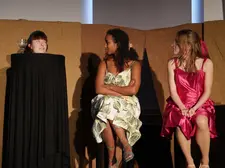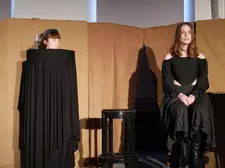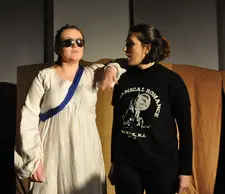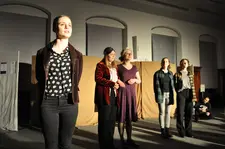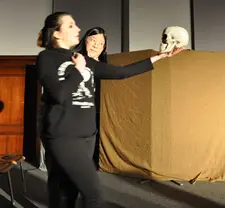Shakespeare But Not (February 2023)
In the winter semester of 2022/2023, BUEDG was finally back with the first in-person performance since the begin of the pandemic. The semester’s workshops were focused on live performance in general, as it was the first time performing on an actual stage in front of an audience for many members, even those who have been around for longer.
On 4 February 2023, we performed 3 short one-act plays under the motto and title of Shakespeare But Not – the plays are kind of Shakespearean but not at all at the same time. While none are written by Shakespeare himself, they are more or less closely connected to his works.
The Beggar and the King by Winthrop Parkhurst
The first is also the most loosely connected to Shakespeare - a slight wink to a dialogue in Love's Labour's Lost, when Don Armado asks: "Is there not a ballad, boy, of the King and the Beggar?" (Act I, Sc. 2). But the one Don Armardo thinks of is a very different tale to the one told here.
Nonetheless, this play finds its place among the other two. The king just wants his peace - but the beggar would like a piece of bread. The servant tries to help, but alas -
The Real Problem by Bruce Kane
Katherine (Rebekka Baumann) from The Taming of the Shrew, Anne Boleyn (Louisa Hoffschildt) or rather, Anne’s head, Juliet (Alexandra Kaltner) from Romeo and Juliet, and Desdemona (Milena Megos) from Othello, all come together for drinks in this comedic crossover.
While drinking coffee or sow’s blood – each to their taste – they discuss ‘the real problem’: their respective men, mostly. They seek advice from each other and from their waitress Hecate (Julia Schubert), who then gives Anne a glimpse of what fate the Shakespearean ladies awaits.
Due to copyright, this play was not recorded.
if you die in hamlet you die in real life
Or rather, Hamlet, but 'mmmm, watcha say' plays every time a character dies.
This modern version of Hamlet follows the original play rather closeley ... just maybe a little bit more concise. Following Shakespeare by the spirit but not the word, it adds a distinctly modern flavour to what Shakespeare 'basically' wrote.
The play offers a unique comedic take on an old classic, not taking itself very seriously but also containing a deeper meta commentary. The characters are not only aware of being in a play, they are actively discussing plot points, stage directions, subtext, and the progression of the plot, which might hold some surprises after all.
